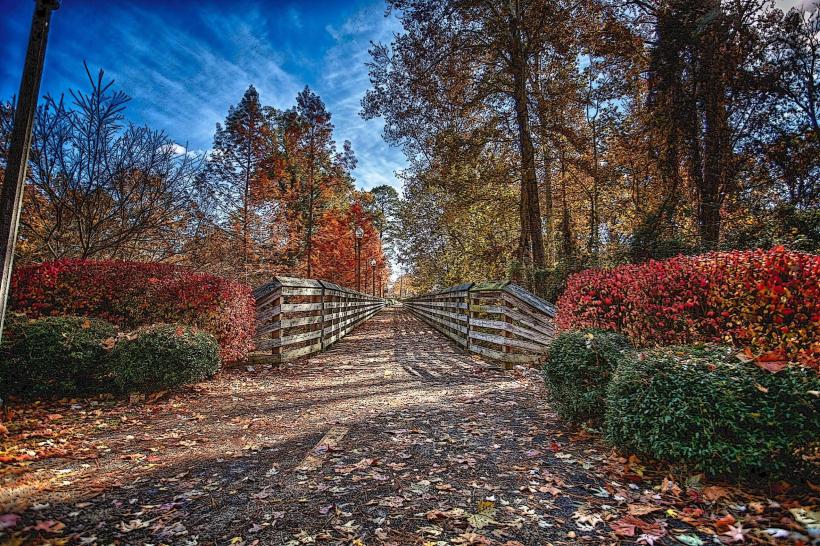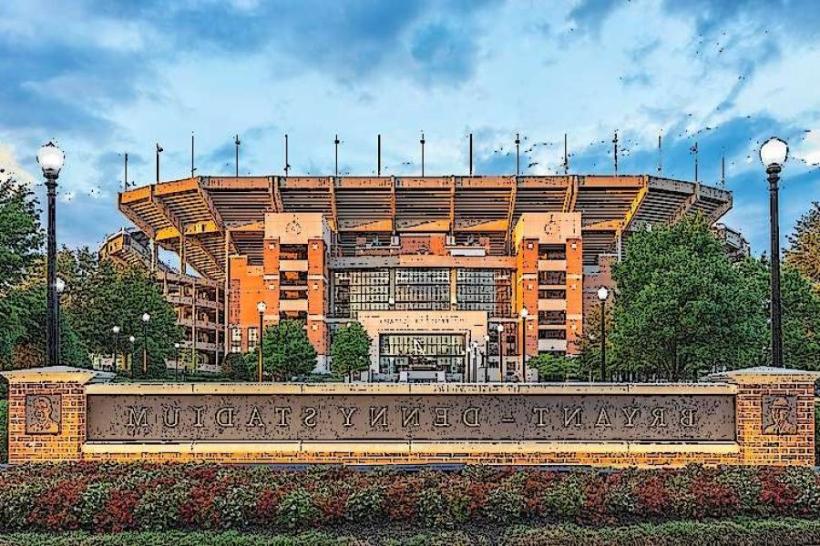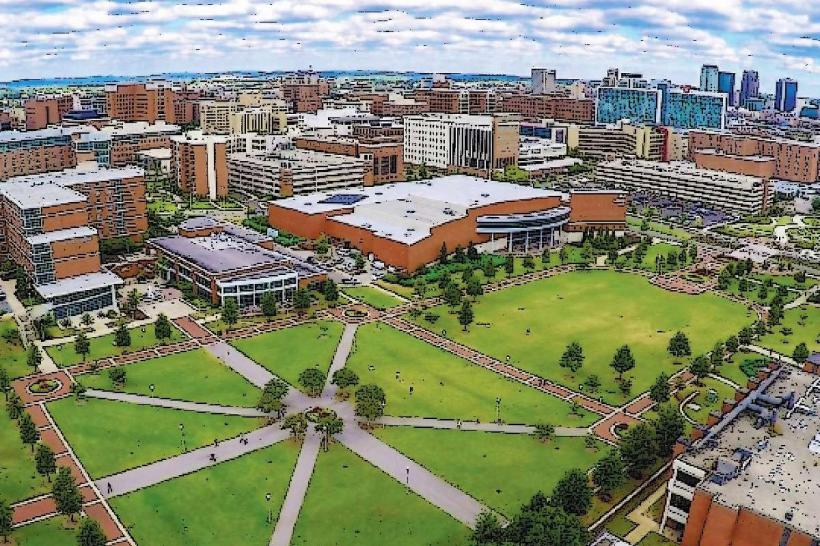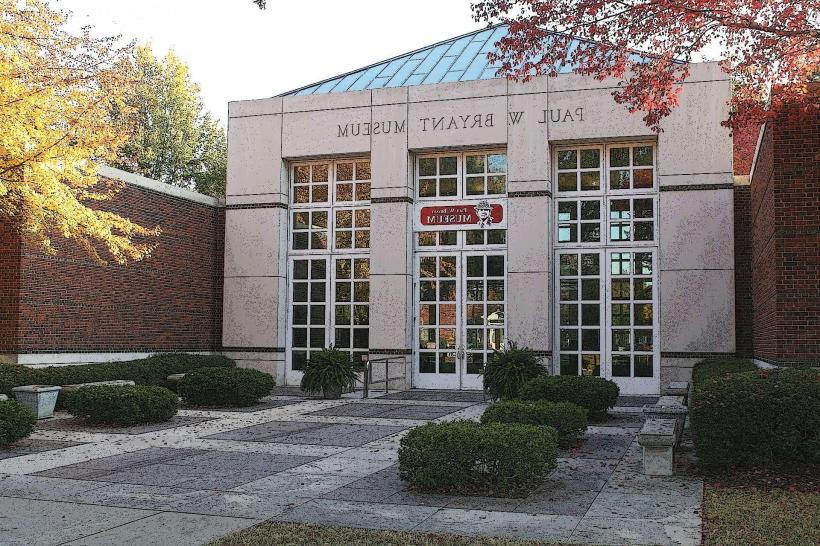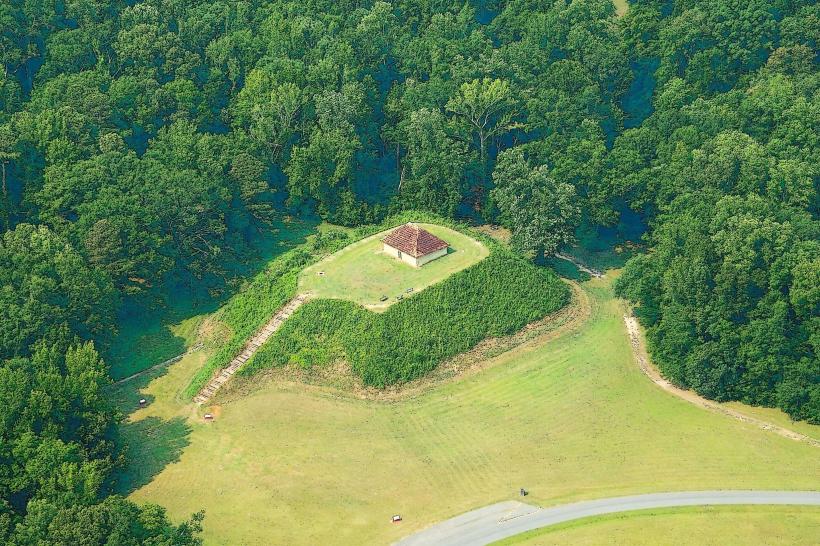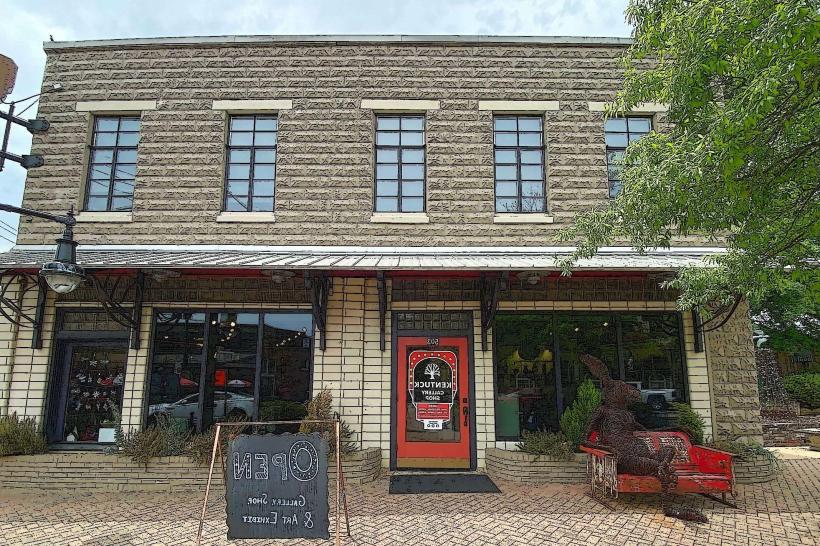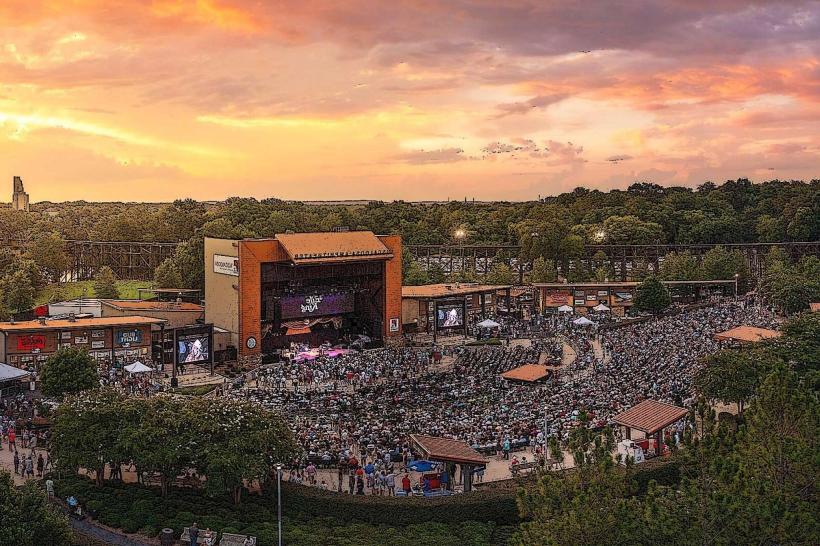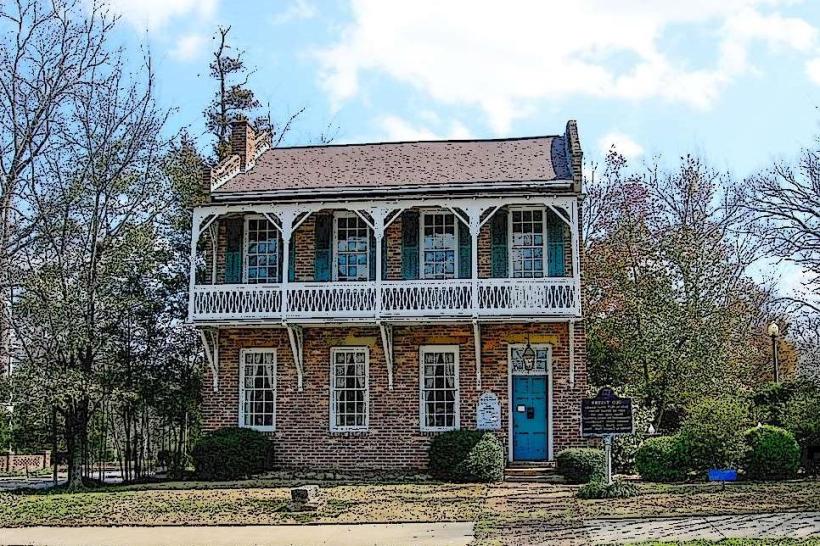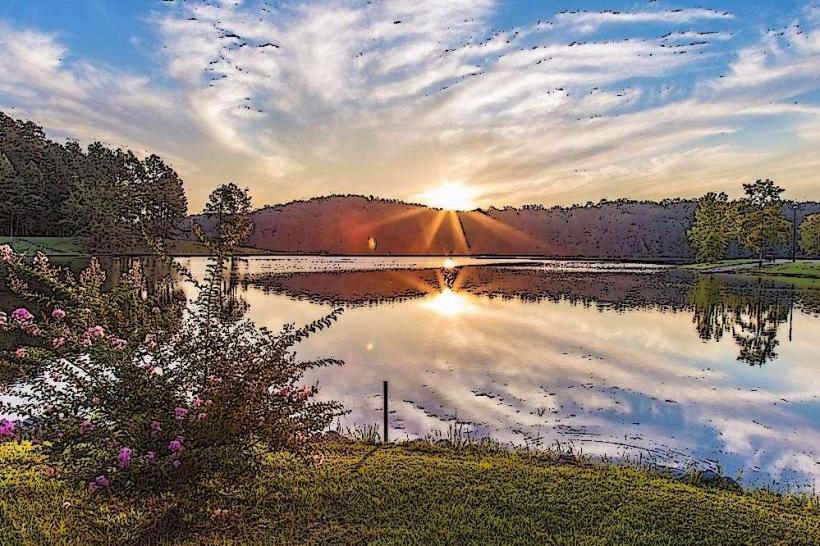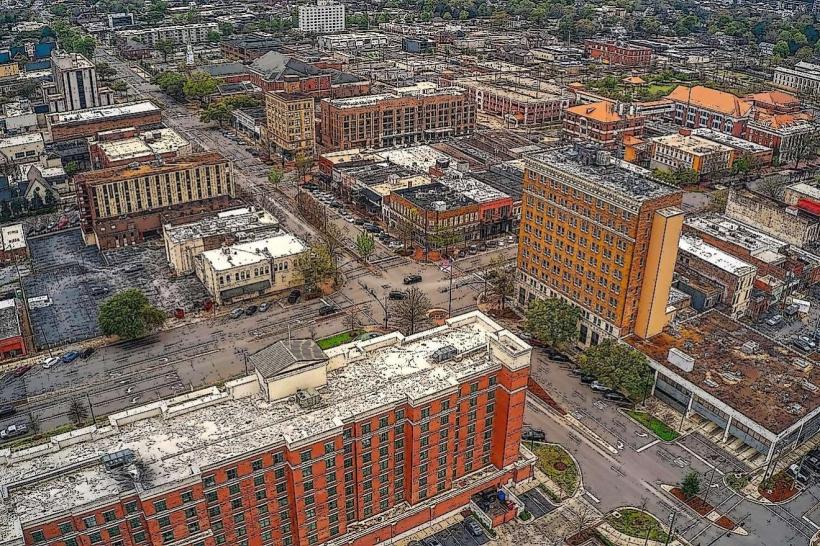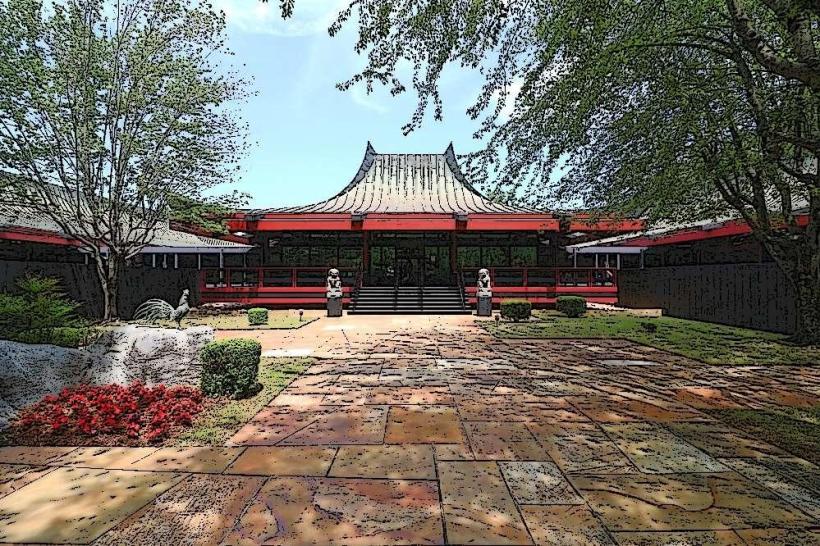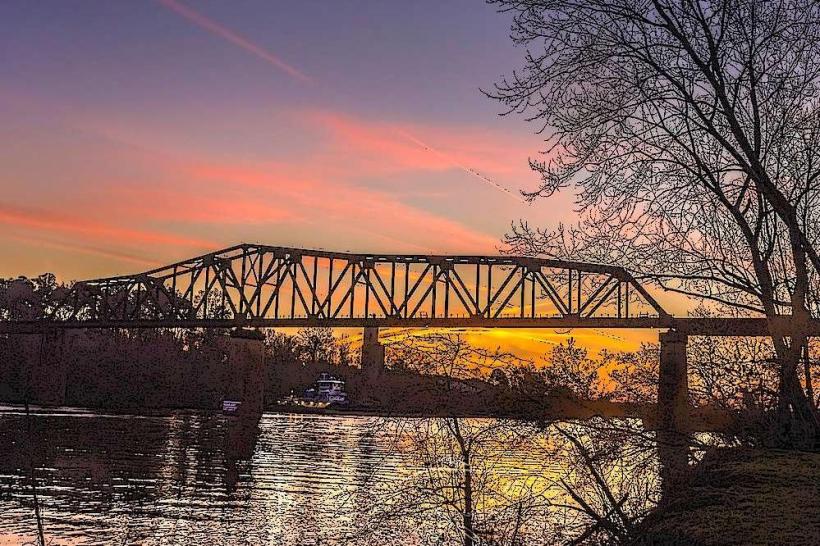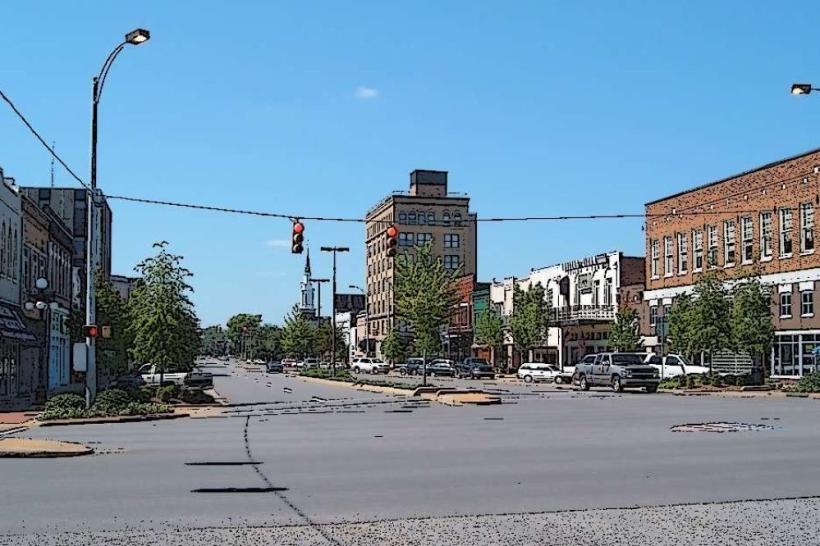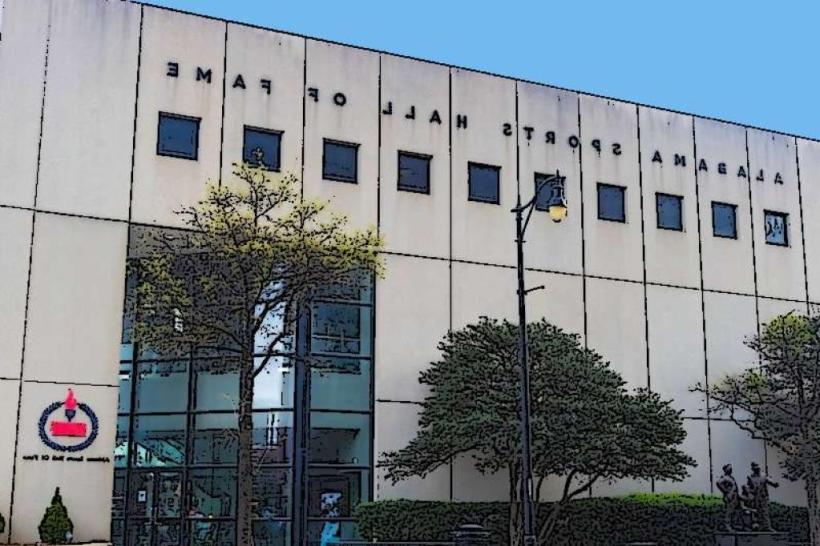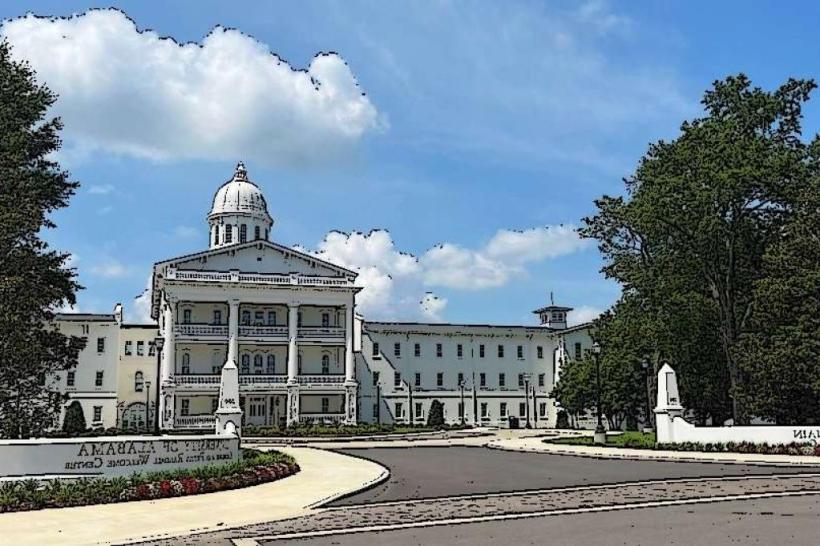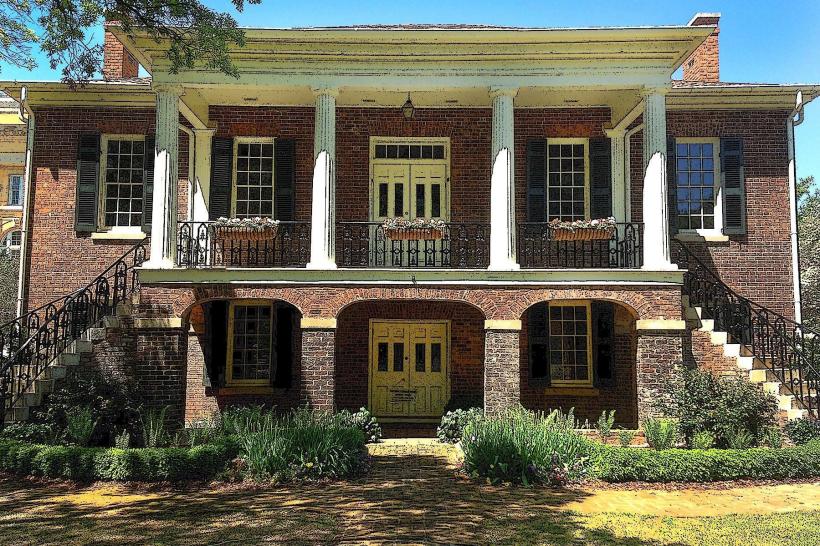Information
Landmark: Jemison-Van de Graaff MansionCity: Tuscaloosa
Country: USA Alabama
Continent: North America
Jemison-Van de Graaff Mansion, Tuscaloosa, USA Alabama, North America
The Jemison-Van de Graaff Mansion is a historic house located in Tuscaloosa, Alabama, USA.
This Italian Renaissance Revival style mansion was constructed in the late 19th century.
Visual Characteristics
The mansion is a two-and-a-half-story structure constructed primarily of brick. It features a prominent central tower with a hipped roof, decorative cornices, and arched windows. The exterior is painted a pale yellow, with white trim around the windows and doors. A wraparound porch with Doric columns extends across the front facade.
Location & Access Logistics
The mansion is situated at 702 Government Street in Tuscaloosa, approximately 1.5 kilometers southwest of the city center. Access is via Government Street, which connects to University Boulevard. On-site parking is available for visitors. Public transport options are limited; the nearest bus stop is located on Government Street, approximately 0.5 kilometers east of the property.
Historical & Ecological Origin
Construction of the Jemison-Van de Graaff Mansion began in 1889 and was completed in 1891. It was designed by architect William Nichols for Robert Jemison Jr., a prominent Tuscaloosa businessman. The mansion was later acquired by the Van de Graaff family. Its original purpose was as a private residence.
Key Highlights & Activities
Visitors can tour the interior of the mansion, which showcases period furnishings and architectural details. Exterior grounds are accessible for viewing. Photography of the exterior is permitted. The mansion is often used for special events and private functions.
Infrastructure & Amenities
Restrooms are available for visitors during public tour hours. Limited shade is provided by mature trees on the property. Cell phone signal (4G/5G) is generally reliable in the immediate vicinity. No on-site food vendors are present; dining options are available in downtown Tuscaloosa.
Best Time to Visit
For optimal exterior photography lighting, late afternoon is recommended. The mansion is open for tours on specific days and times, typically Thursday through Saturday. Checking the official schedule is advised as hours can vary seasonally.
Facts & Legends
A notable architectural feature is the intricate plasterwork found throughout the interior, including elaborate ceiling medallions and cornices. The mansion is listed on the National Register of Historic Places.
Nearby Landmarks
- University of Alabama Campus (1.2km Northeast)
- Tuscaloosa Museum of Art (1.5km Northeast)
- Alabama Museum of Natural History (1.8km Northeast)
- Capitol Park (1.7km Northeast)

